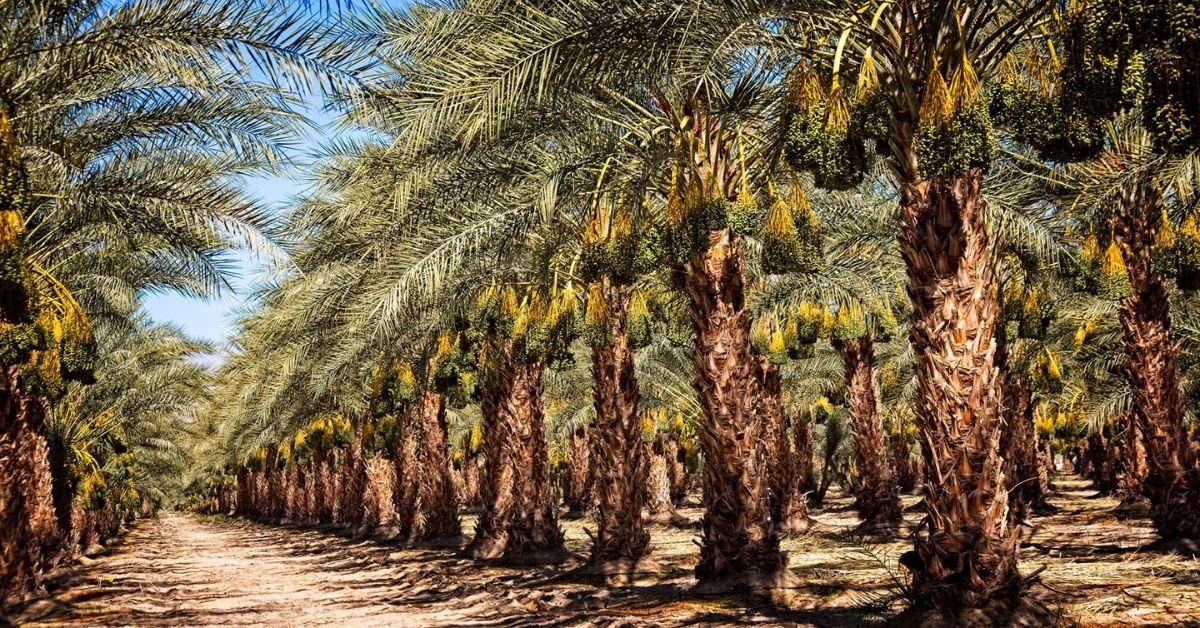WITH THE harvesting season of fresh dates taking off, four farmers of Anjar taluka of Kutch district on Sunday launched their date dehydration plant, first-of-its-kind in the state, with an aim to cater to the domestic market of dried dates presently serviced by imports from Pakistan. Their venture coincides with what promises to be a good-crop year in Kutch, the “dates bowl” of the country.
With 18,825 hectare (ha) under date palm cultivation, Kutch is the largest date palm district in the country, accounting for around 85 per cent of acreage and production of India, say scientists of Sardarkrushniagar Dantiwada Agricultural University’s Date Palm Research Station (DPRS), in Mundra, Kutch.
Farmers in Rajasthan, Punjab and Haryana have also started cultivating this crop in recent years even as the country remains dependent on imports from Gulf nations and Pakistan for meeting its demand of around 3 lakh tonnes (lt) of Pind Khajoor (soft dates) and more than 1.5 lt of chuhhara (dried dates), they add.
Of late, farmers have been planting high-yielding Bahri variety, commonly known as Israeli variety. A few biotechnology laboratories have also developed high-quality plants of indigenous varieties through tissue culture and started supplying to farmers.
“But seedling-origin indigenous varieties account for almost 70 per cent of total acreage of date palms in Kutch and there is huge variability in quality of fruits,” says Kapilmohan Sharma, assistant research scientist at DPRS.
The quality variation results in differentiated prices, says Vikramsinh Jadeja, general secretary of Kutch Date Palm Growers Association (KDPGA), an organisation of around 500 farmers in Kutch.
“While premium fresh dates of indigenous varieties fetch up to Rs 400 per kilogram, some palms of indigenous varieties produce inferior quality fresh dates that fetch as low as Rs 3 per kg,” Jadeja, who owns an 8-hectare orchard in Khedoi village of Anjar taluka, says.
To address this issue, Jadeja and three other farmers — Kishorsinh Jadeja, Praful Patel and Girish Mistry — formed a group called Sarthi Trading and set up a dehydration plant with a capacity of five metric tonnes per day in Khedoi. The farmers put their plant on steam on Sunday after getting an order from Noida-headquartered Dharampal Satyapal Group to supply 200 metric tonnes of dried dates.
“Around half of three lakh metric tonnes fresh dates produced in Kutch is not fetching the best price. On the other hand, the landed cost of dried dates imported from Pakistan has gone up since direct trade from the country was suspended in the aftermath of India ending the special status of Jammu and Kashmir in August 2019. Pakistan imports are routed through Nepal and Dubai, increasing the cost. The DS Group gave us an order to supply 200 metric tonnes of dried dates… Therefore, we sourced a custom-made plant from Ahmedabad at the cost of Rs 25 lakh and started production from Sunday,” said 73-year-old Jadeja.
Kishorsinh and Patel too own date palm orchards in Kheodi and neighbouring Pantiya villages respectively, while Mistry owns a mango orchard in Nagalpar — all in Anjar taluka.
DS Group could not be reached for a comment.
Sharma of DPRS says the trade embargo by Pakistan presents an opportunity to Indian farmers and processors. “We have been trying to tempt industry and farmers into the value addition business. But the issue was price competitiveness of dehydrated dates vis-à-vis dried dates imported from Pakistan.”
“In Khairpur district of Pakistan’s Sindh province, longer summer, little rainfall and sunny days allow farmers to sun-dry their kharek whereas in Kutch, monsoon and kharek harvesting season generally coincide, allowing no window for sun-drying the fruit. Therefore, the fruits require to be dehydrated mechanically, which involves a cost,” he said, adding the DPRS has been guiding farmers like Jadeja.
Sharma said that the price of dried dates imported from Pakistan used to be around Rs 100 to Rs 130 in retail markets in India. But after the Balakot air strike, prices of dry dates shot up to around Rs 250 as trade between the two countries was affected.
Source : Indian Express.







